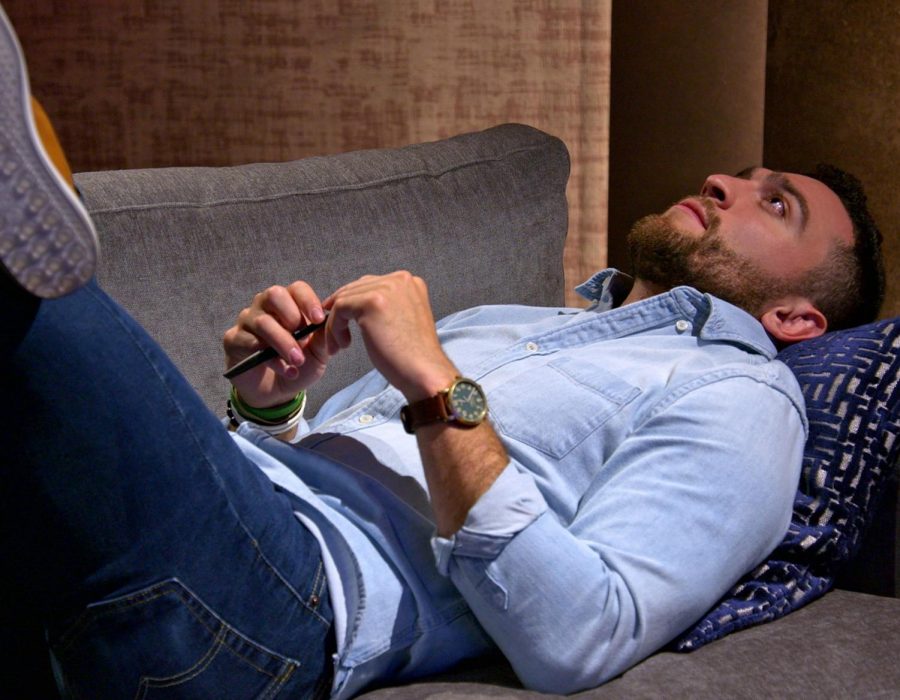Netflix reality series questions if ‘Love is Blind’
Opinion Columnist Abigail Bennethum questions if the formula for Netflix’s “Love is Blind” actually works. Above, Mark Cuevas in the dating pods on the streaming service’s dating show.
Mar 5, 2020
On Feb. 13, Netflix aired a show called “Love is Blind.” This show is an experiment where the scientific question asked is if love is blind. During the show, men and women of all colors, socioeconomic backgrounds and sexual orientations are placed in pods and go on dates. Removing all the physical factors of height, looks and other physical features, participants only have their personalities. This experiment is such an interesting concept because we do live in a world where we base a lot of what we think of people significant other or not on their looks. As much as I love the show and devoured it over a week, some things bothered me as a watcher.
First being the selective correspondence between the couples. I think this would be the number one barrier in this type of experiment, seemingly very similar to texting and an over the phone type relationship. You get to show the absolute best qualities about yourself and those qualities only. Nobody wants to tell their potential significant other about their innermost insecurities and bad habits. In these pods, participants are separated and when they finally see each other, they’re engaged. After not meeting before engagement and now being sent to Cancun, Mexico, for a getaway to see if they can establish a physical relationship as good as they have established a connection. In my opinion, this is where things got sticky. As all the couples were engaged and sent off, I feel this was the beginning of the end, even though they haven’t been hit with the “real-life” yet they are together with the inevitable fights, insecurities and jealousies.
Besides selective correspondence, something I noticed during “Love is Blind” is how some of the participants seem to be motivated by the limited time they have in the pods. One participant in particular I noticed was more attracted to the more of a player, however, when rejected she immediately went back to her second choice. Another time I noticed this was right before they were all scheduled to get married. All the participants were sorting out where they were mentally, days before the wedding. I think time is an important factor in any relationship, romantic or not. I understand during this study they were not supposed to see each other, however, was the time limitation necessary? Was there no other way to allow more time for participants to get to know each other?
Since I don’t want to spoil too much, I want to leave you with the obvious question. Is love actually blind? Could you really fall in love with somebody in a matter of days?








